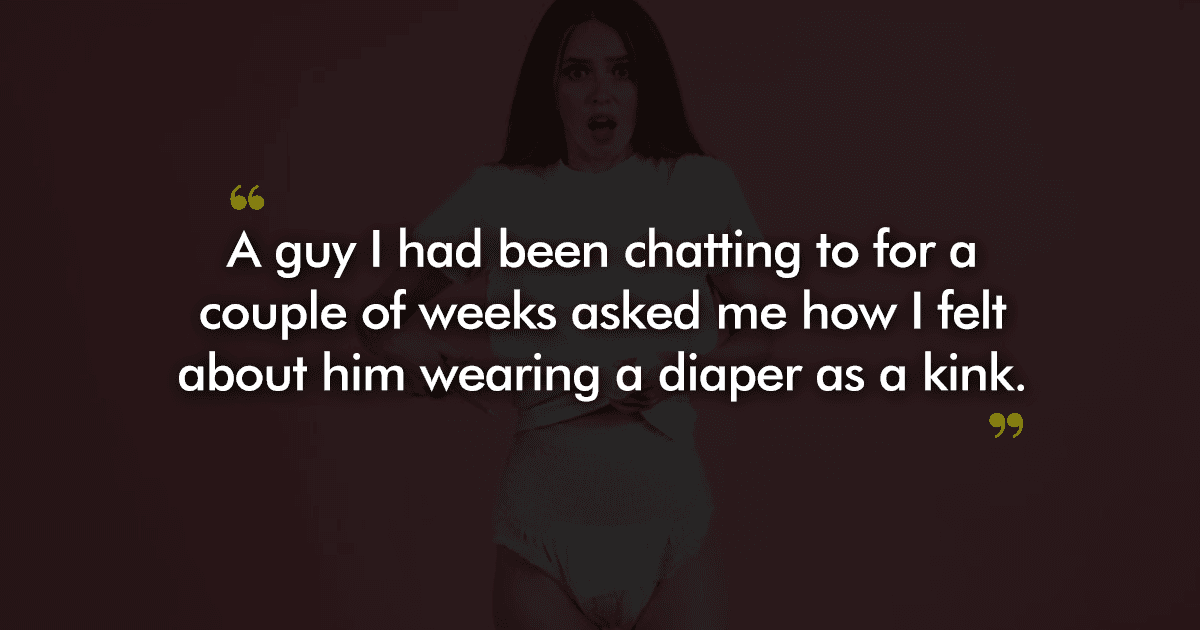Many of us grew up being told that the most suitable partners for us are people who belong from the same caste, religion, culture or nationality. But every so often, we come across real-life examples of couples who belong from two different cultures and are thriving together, beautifully!
And to add to all those instances, we’d like to give you this list of confessions where Redditors have discussed coming together and dating people from different religions, cultures and communities. Read on:
1. “My husband is American and I’m Indian. Culture isn’t really a problem for us since we both share the same political/religious/social outlook on life. I say it’s a lot of fun because even after 5 years of being together, we still learn about each other’s culture. Never gets boring.”
2. “Husband is Muslim. Got excommunicated, and we had to elope. His family is cool though. His parents were not at all religious or conservative.”
3. “My parents were from different communities and they’re doing pretty well but honestly, now I understand why people look for partners who share the same religion. My dad is a Hindu and never forced my mom to change her religion but my grandparents and my entire paternal family low-key hates her for not changing her religion and her name after marriage. They gave her the tackiest Hindu name (unofficial) and don’t even call her by her actual name when we meet them, expected her to teach us prayers that she can’t even read. My mom’s community disowned her as well initially but now it’s much better (her community still took away her property since she “betrayed” them and gave it to my aunt and her kids).”
4. “Girlfriend is Muslim. Experience has been great, just need to switch to halal meat when with her.”
5. “My partner of 6.5 years is white Australian. He’s my soulmate. We have had very different upbringings and life experiences but when we are together we get on really well because we share values and goals and interests. It helps that we are both nerds and crazy cat parents!”
6. “It’s great! We really get each other and just laugh constantly. We both value independence in marriage. I admit I never was into dating a desi man because I’m not interested in the family drama. My husband understands that some of my habits & values come from being Indian. Just like how he gets many quirks from his parents too. My parents love & accept my husband. First kid is arriving in a few months. I’ll be raising him atheist/agnostic because that’s what we are, but we’ll eat Indian food and celebrate Diwali.”
7. “We have the same values, sense of humor and need for affection. There are so many things that make a relationship successful other than culture. I have everything I prioritize in my partnership.”
8. “My SO is British, and I’m a mixed-race (Portuguese-French-Indian) woman of color from Southeast Asia. She’s pretty Christian, and while I was raised Catholic, I don’t really subscribe to any set of religious beliefs. A lot of the time, the relationship she has with her parents is really weird to me, especially the fact that they’re not paying for her education, while my parents and the parents of most of my peers have agreed to support us to at least Masters-level — which, I realize, makes me sound incredibly entitled. I also don’t really understand how she can’t eat spicy food. My cousins and I dare each other to eat ghost chilies for fun, and it’s strange to me how whenever we go to her mom’s house for a family thing, the TV is always on during meal times, because when my family comes together, we just sit there and eat and talk over each other. Some of the differences are really nice, like how her family is a lot more accepting of our relationship than mine is (my family can be a bunch of unwelcoming, classist fuckheads), and how relaxed they are, because my family is really judgemental and controlling. Her family is also a lot nicer to me than my own family is.”
9. “I am British, she is Portuguese-Indian and from Southeast Asia. I think one of the most important things to remember is to try and accept and embrace the differences. Learn to love the different things that the two of you can bring to the relationship.”
10. “Not married, but I’m from the American midwest, and my SO is from India. Despite growing up thousands of miles apart, we had similar religious/economic/familial upbringings, so we don’t have to deal with wrangling very large differences there. Both of us will eat pretty much anything, and neither of us are particularly dogmatic when it comes to cultural norms (although he tends to be more successful at being open-minded in practice). Honestly, the biggest differences we have are functions of personality, rather than culture. Funnily enough, he’s the archetype of an ‘ideal partner’ in both cultures, while I’m… sub-optimal. He doesn’t seem to mind, though.”
11. “I dated an Indian guy once who grew up in PR (Puerto Rico), too. He was a super woke Tumblr-y type and I guess he followed a lot of black Tumblr accounts, so he knew a lot about black stuff. That was mostly cool. Sometimes he was a little too woke for me, though.”
12. “I’m of Indian descent; my exes were Latin American, Arab, southern European, and British from linguistic and religious backgrounds different from mine. No problems for the most part; I’m pretty adaptable and am not bothered by differences, as they were the same. I’ve had a lot of dead-end first dates with White American men not because of lack of attraction, but the cultural gap is too wide, the awareness too little, and race is too important for them. Dead-end dates with other South Asian Americans too for other reasons (one of which I’m either not Indian enough, or don’t self-hate enough).”
13. “Delhi guy here married to my wife from Hong Kong. Both of our families (including extended family members) have always been very accepting, and we get lots of love from our parents. There was a bit of drama during our wedding due to culturally different expectations of rituals and timeliness, but no long-term differences. Currently out with my in-laws to visit relatives in Hong Kong on Chinese New Year. Kung Hei Fat Choy!”
14. “My husband’s parents (Indian) love me. His whole family treats me very well. Our only challenges have been cultural. He’s much more conservative than I. But we talk it out and compromise. I can’t imagine life without him.”
15. “Not married, but I’ve been with my partner for about 8 years now. He’s Telugu, I’m a Tamil who grew up in Mumbai. To add to the mix he is Hindu, while I’m Roman Catholic. We both speak to each other in Hindi and English, but now both of us are making a conscious effort to understand the other’s mother tongue. As for children, we have decided the best way to make them understand both languages is speak to them more, but considering that our fluency with the languages is not the best, we figured a great way would be to have the kids spend more time with their grandparents. Another way to understand culture is through food; I feel we both have it covered. We both enjoy cooking and my SO loves traditional Telangana and Andhra food while I’m learning as many dishes from my mom as I can. Coming to in-laws, yes, there is small language gap, but we can manage to navigate with broken Hindi and English. So progress is being made!”
16. “We are a Gujju-Telugu couple. Our hometown is in another state. So at home, we are kind of a khichdi of three-four states, as a family. We mostly speak in Hindi-English. Both understand each other’s language a bit, but can’t speak. (We have a third common language which becomes our code language). My kid can understand my language, but can’t speak. She also understands Hindi, but can’t speak because we are not in India. (She is learning Chinese as a second language. So the kid is going to be confused in terms of languages). Culturally, we have become a mix of everywhere we have lived. Parents are very broadminded, they embrace our variety of food that gets cooked. Thepla-sambar-rice is a legit combo on the menu.
Can’t say my child is rooted in any of our cultures in the traditional sense, partly because we ourselves have rejected a lot of “traditions”. (I am non religious and do not follow most of the customs related to pooja-upvas, etc. ) Our kid is learning some traditional stuff with grandparents, we tell her stories/songs from our cultures, celebrate most festivals with other Indian families here, spend vacation in India etc. But honestly, we are trying to bring her up with curiosity and respect for every culture (including the non Indian ones). What she will end up picking in her own life will depend on where she goes and the people she meets. Most of what we are trying to pass on to her is our value system which is mostly ‘Be honest, be fair, be kind’ type of stuff which is really universal.”
17. “In-law relationships are cordial and friendly. My partner has learned to speak some basic Telugu and has also learned about some of the festivals and culture while I’ve picked up some Mandarin. Everyone speaks English fluently though so it’s really not an issue. We often make both Indian and Sichuanese cuisine at home so that keeps things fun. Values are very similar so that’s ultimately what matters more than things like food or language.”
18. “My white husband just politely asks what we are talking about when the conversations turn primarily Urdu. Often my family has men and women sitting separately so that was the most difficult part for my husband. My best advice is if you live near your in-laws then have frequent casual interactions (e.g. cooking in the kitchen with you mom-in-law) so they can share their experiences and history individually rather than in a group setting.
Note, it is just as strange for me and his family even though they only speak English since the culture is so different. The most valuable aspect is clearly communicating expectations. For example, my family would not be comfortable with hugging or hand holding while his would be concerned if that didn’t happen. Overall, everyone acclimates eventually and there’s not much you can do to accelerate that apart from repeated interactions over time. Also, try to account for their personality and try to provide ways to highlight that – since my husband likes to be useful I try to give him specific tasks such as helping setup devices.”
In my opinion, all that should matter is that two people love and respect each other, nothing else.

















